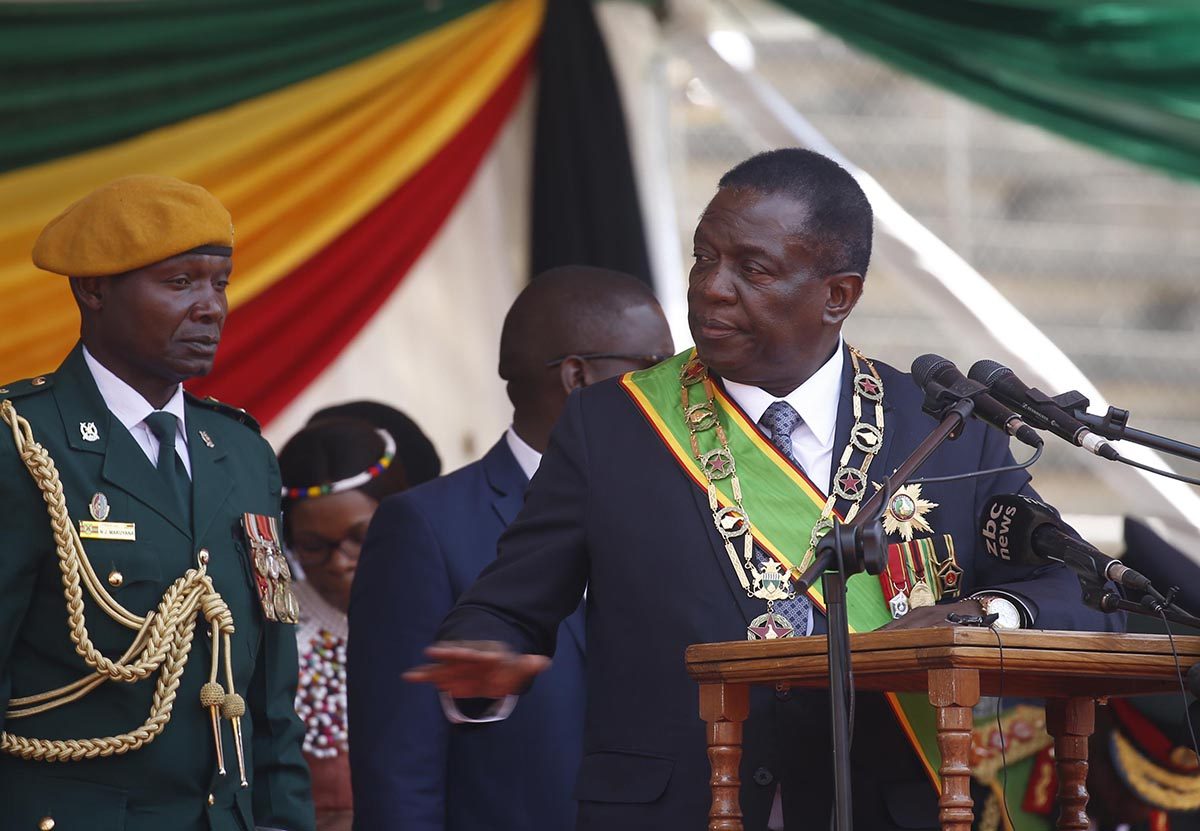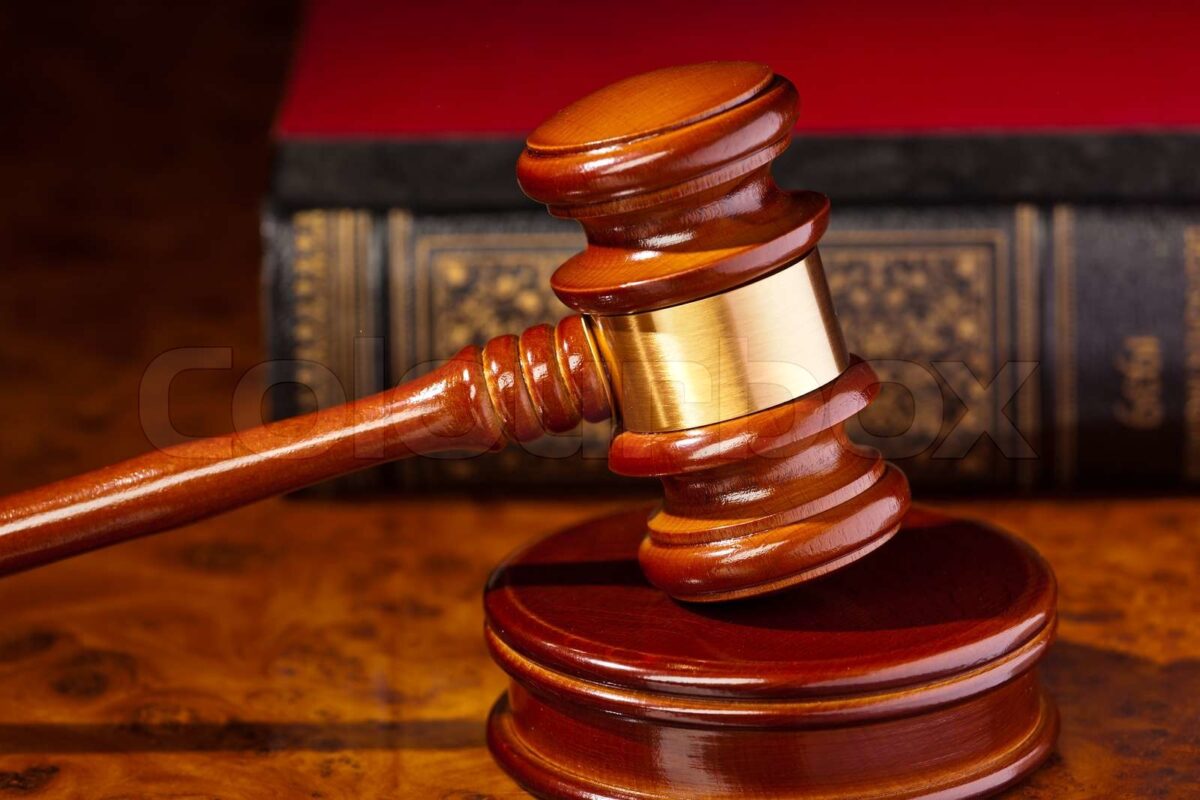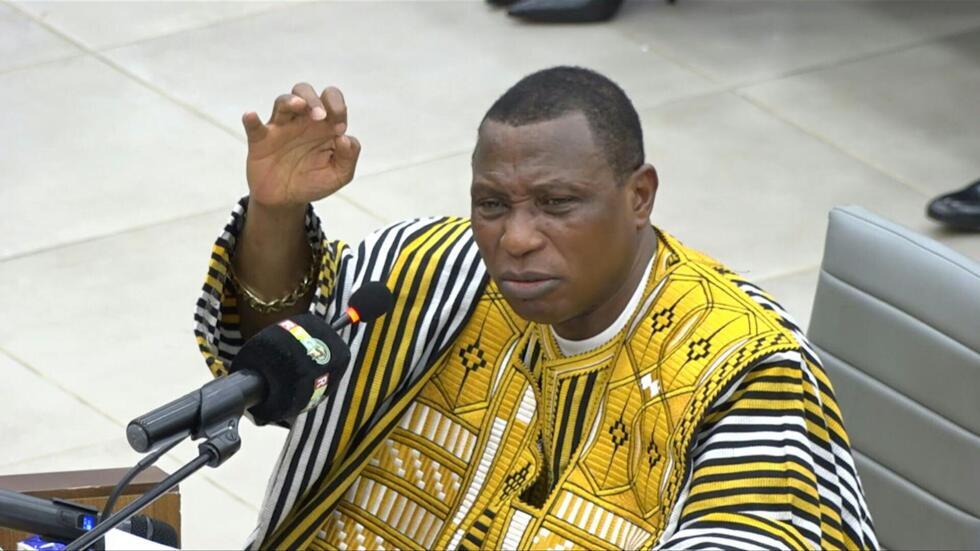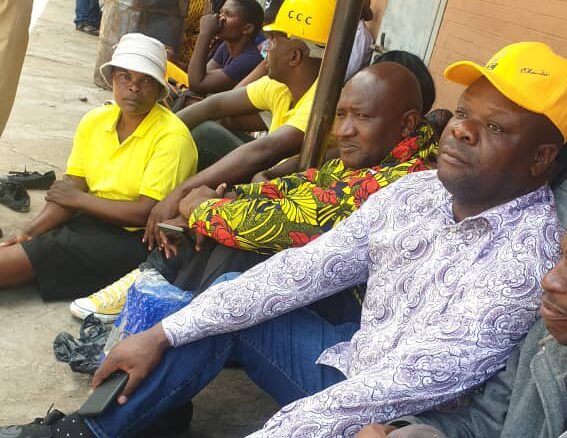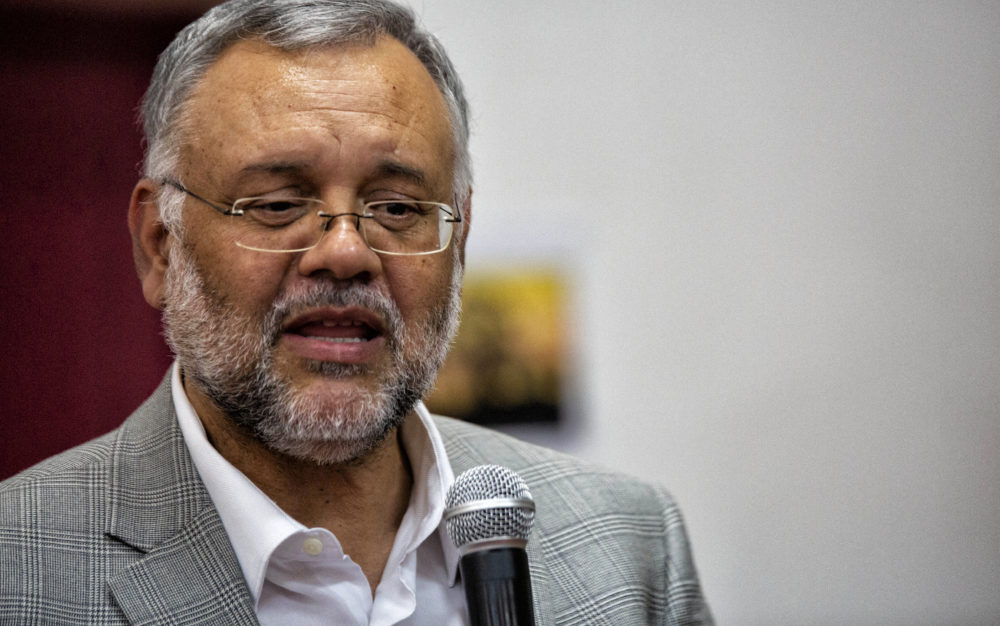NOTORIOUS Colombian drug lord Pablo Escobar had corrupted the police and most of the courts. His status as the wealthiest criminal in history (US$56billion by today’s measure) allowed him to maintain a patronage and intimidation system similar to a nation state.
Zanu PF seems to be a keen student of Escobar’s power-matrix which he captured in the ungodly maxim “silver or lead.” Accept our bribe or die; the choice is yours. In Zanu PF’s case death is both literal and metaphorical; those who resist have lost their lives, careers or businesses.
When the Colombian government agreed to a US request to extradite Colombians on narcotics offences, Escobar knew he was cornered. He could not corrupt the US justice system and he was no-doubt high on America’s list of suspects. This realisation made him dangerously desperate, which is saying a lot for a man whose lead routinely snuffed out the lives of opponents who rejected his silver.
The Palace of Justice was attacked by a group of heavily armed M-19 rebels. They began to execute Justices of the Supreme Court while feigning negotiation with the Colombian authorities. One hundred people lost their lives. It later emerged that this brazen assault on the Colombian justice system had been encouraged and likely funded by Pablo Escobar’s Medellin Cartel. Escobar’s violent message to the justice system was clear: extradite me and die.
President Emmerson Mnangagwa and his dangerously corrupt Zanu PF are equally cornered. The intelligence apparatus had assured him that Nelson Chamisa did not have the resources to mount a credible court challenge against the rigging of the July 30 Harmonised Elections. This assessment was correct. The MDC Alliance has no money as evidenced by Chamisa’s zero budget campaign. What they did not know was that a dream team of highly skilled software engineers, data analysts and statisticians had been working for months preparing a sophisticated model that would captured the inevitable Zanu PF fraud as the results were announced. Mnangagwa was also unprepared for the clumsy Zimbabwe Electoral Commission (ZEC) mistakes that would expose his rigging beyond reasonable doubt.
Mnangagwa is now cornered and the desperate attempt by his legal team to extinguish Chamisa’s Constitutional Court challenge using technicalities has exposed the extent of this desperation. They are well aware that the merits of the case are devastating. These merits, as well as the shrinking political space around Mnangawa, are the subject of this article.
The most glaring examples of electoral malpractice do not require any sophisticated analysis. For instance, the results announced by ZEC on television declaring Mnangagwa the winner of the July 30 presidential election are inconsistent with the data on the CD given out by ZEC to the European Union observer mission. This is the same CD that was given to the MDC Alliance and other candidates who requested that information. ZEC purports to have relied on the data on that CD in determining the winner but an arithmetic tally of the CD’s data shows that Mnangagwa won 4904 votes less than those announced by ZEC on national television. ZEC falls on the contradiction of its own televised announcement and distributed CD. This is a legal fatality.
Furthermore, based on ZEC’s own voters’ roll, which was distributed to observers and political parties, dozens of polling stations recorded a turnout higher than 100%. Put simply, more people voted than those that were registered to vote. These are called ghost voters. The most glaring example of this brazen electoral fraud is Dalny 1 Primary School polling station in the Chakari constituency: only 667 voters were registered to vote but 2800 votes were cast. This means 2133 ghost voters were inserted. Never mind that only 1000 votes could be cast at any one polling station. This too is a legal fatality.
When a voter approaches the polling officer he or she is given three ballots whether or not they intend to use them. If the voter elects to vote only in the presidential election, they are still required to cast the other two ballots blank. These will be spoilt ballots. Given this elementary but robust procedure, the total votes cast for parliamentary and presidential votes must tally. When they do not, the discrepancy can be resolved by accounting for the spoilt ballots. This is a simple matter that humiliated Uhuru Kenyatta’s lawyers when they were quizzed by the Kenyan Supreme Court. In our case, the disparity is violent and extends into the tens of thousands.
If these ZEC contradictory numbers were not sufficiently catastrophic, which they are, there are a number of polling stations that were excluded from the final count. Other polling stations (Rushinga and Mbire constituencies, for example) were counted twice which gave Mnangagwa an effective 7,703 votes that he did not have. Those votes must and will be removed from Mnangagwa’s total. It is important to remember that Mnangawa has a precarious 0.8% (less than 40,000) votes above the 50% + 1 required to avoid a run-off.
The above evidence is based on data supplied by ZEC. Mnangagwa will fall below the 50% + 1 threshold before the more egregious allegations of rigging are introduced. The involvement of the highly respected Dr Otumba Ouko (PhD Applied Statistics) in unearthing vast statistical improbabilities and his sworn affidavit asserting the same is not trivial. Zanu PF’s goons know this.
Zanu PF is indeed well aware of the insurmountable challenge it is facing if this case is heard on its merits. They are now panicking. This explains their desperate argument, expressed in screaming propaganda headlines in both the Herald and Sunday Mail, that Chamisa’s challenge had been filed late. This was an attempt at killing the application on false technicalities before the devastating merits are heard in open court. This cheap shot failed spectacularly when Zanu PF’s lawyers attempted to lodge their opposing papers on Monday, August 13, a public holiday. Their argument was weekends and public holidays were in fact included in the seven days within which Chamisa was to lodge a challenge. Their unsuccessful attempt to file opposing papers on a public holiday, which was hilariously captured on camera, put that argument to rest. If their argument was true, then their filing on Wednesday, April 15, was itself out of time as they should file within three days which, based on their argument, expired midnight on Monday, August 13.
There have been whispers about other potential technicalities; this too was put to rest by NewsDay journalist Blessed Mhlanga who on Monday unearthed and published remarks by Justice Luke Malaba in 2013 in which he stated, quite categorically, that an application challenging a presidential election could not be dismissed on technicalities. The case must be heard on its merits. No amount of Zanu PF lead or silver will force an esteemed Justice to renounce his own words. Malaba will have to retire in three years. His credibility assures his future and prestige on the regional and international stage. He already sits on the Comesa Court of Justice. In any case, there are already numerous instances where the Constitutional Court set aside technical failings. An example is the Tendai Biti child marriage application which the court noted should have been dismissed on technical grounds but it was heard because of its national importance. There is no technical way out for Mnangagwa. The case will be heard on its merits.
There are equally substantive background issues that ZEC will be required to answer. The law clearly lays out the manner in which presidential election results must be announced. It is not a discretionary matter. In violation of the law, ZEC Chairperson Justice Chigumba did not announce the presidential election results constituency by constituency. This is despite the fact that the presidential vote is counted first. One can speculate about Chigumba’s motives but what is beyond speculation is the illegality.
In addition, the law also states that results must be announced by the ZEC chairperson. Television recordings clearly show that Chigumba delegated the announcement of some results to ZEC commissioners. There is no evidence to suggest the chairperson was incapacitated. This brazen illegality and Chigumba’s cavalier approach to her legal obligation has no justification.
Mnangagwa worked extremely hard before and after the coup to win over the hearts of Western diplomats. He had some success, particularly with the British Ambassador Catriona Laing. It is revealing that the British ambassador has now dropped the Lacoste hot potato. The brutal killing of at least ten unarmed civilians on August 1, and the subsequent crackdown on the opposition, no doubt contributed to the sudden and dramatic change in diplomatic direction. No Western Ambassador graced the Heroes Day celebrations. This apparent boycott speaks to a very clear change in diplomatic relations. The equally forceful American intervention in the Tendai Biti criminal case points to serious diplomatic trouble for the Mnangagwa military-backed regime.
Mnangagwa initially claimed he knew nothing about who deployed the military unit that shot, many in the back, and killed those unfortunate unarmed civilians. He promised he would constitute a commission of inquiry as soon as he was sworn in. At the time fingers were being pointed at an allegedly rogue General Constantino Chiwenga. Mnangagwa did not mind this helpful misinformation. Propaganda articles were even inserted in the Bloomberg with unnamed sources claiming that the Commander of the Defense Forces (CDF) Valerio Sibanda had confronted Mnangagwa demanding to know who had deployed the murderous unit that committed that atrocity. This narrative proved unsustainable after video evidence surfaced of the Commissioner General of Police Godwin Matanga openly boasting of having called in military reinforcements.
This damning evidence forced an about turn and Mnangagwa and his CDF now accept that they were responsible for this deployment. Their new argument is that the soldiers would not have killed anyone if the MDC Alliance had not encouraged their supporters to protest. This is a preposterous argument that cannot withstand the Geneva Convention. International law is very clear on the use of lethal force. You cannot shoot an unarmed civilian in the back, no matter the provocation. Video footage of a soldier getting into a kneeling position before firing into the fleeing crowd exposes the military. That position is a deliberate stability position, it was skillfully taken by the offending soldier to take accurate direct aim. The intention was to kill. If Mnangagwa and his CDF disagree with this unlawful slaughter, the responsible soldiers would have long been court-martialed. Their inaction and blame-shifting point to a cover-up, albeit a clumsy one.
It is clear from the above that Mnangagwa and Zanu PF are cornered. This makes them extremely dangerous, 2008 dangerous. They will soon give up all pretense at democracy and resort to the full barbarism and brutality of dictatorship. They have no option.
While Mnangagwa will try whatever is in his power to hold on to power, it is clear the economy will soon implode and Zanu PF with it. When Tendai Biti left the Finance Ministry in 2013, government domestic debt was at US$200 million. It is now a staggering US$9billion! Meanwhile, it is now clear that there will be no international bailout for Mnangagwa’s murderous military-backed government. Mnangagwa imagines he can use our natural resources to rise out of the inevitable crisis. He is mistaken. Venezuela has an incredible amount of oil that is already being exploited but its economy has collapsed. There is no substitute for fiscal discipline. A growing and unreported scandal is the shady leasing of the Feruka pipeline to Trafigura and the continued accrual of debt by the Government of Zimbabwe. Trafigura will soon demand its pound of flesh and Zanu PF will be forced deeper into murky and unsustainable deals.
If, by some demonic miracle, the Constitutional Court does not put an end to Zanu PF’s madness and impunity, the economy will. You can’t rig that.

